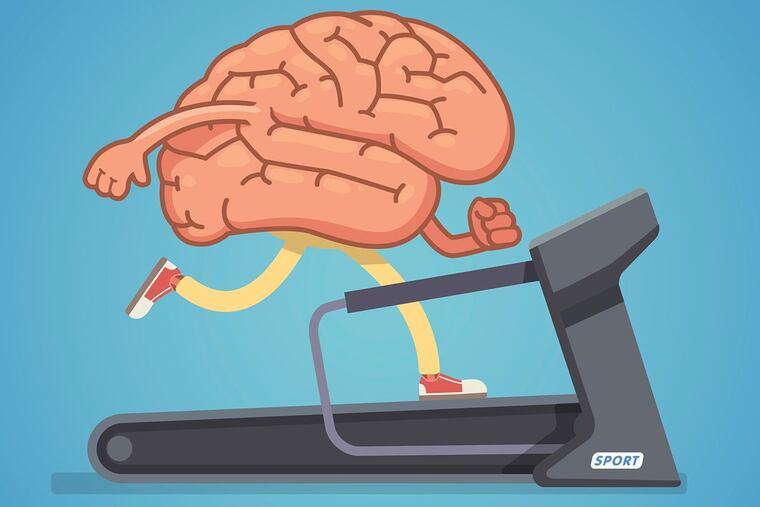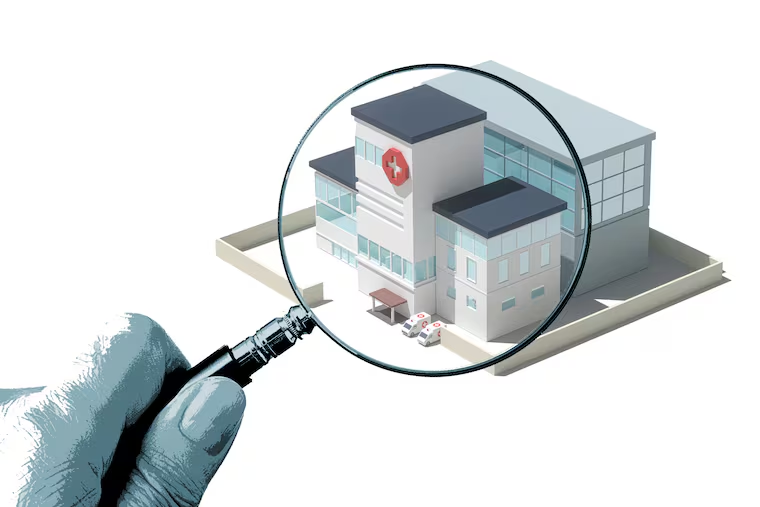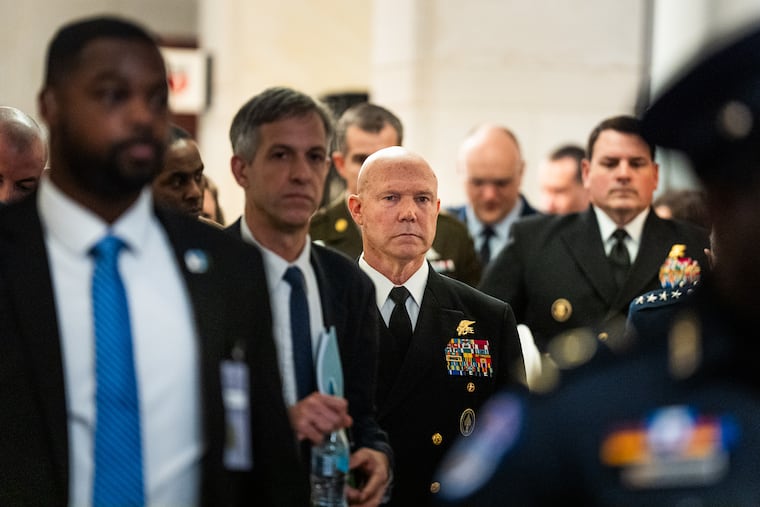Skip to contentJoanna Fong-Isariyawongse, The Conversation
Barry J. Jacobs and Julia L. Mayer, For The Inquirer
Joanna Fong-Isariyawongse, The Conversation
Joanna Fong-Isariyawongse, The Conversation
Barry J. Jacobs and Julia L. Mayer, For The Inquirer
John Lin and Jalpa Doshi, For The Inquirer
BriarRose Edwins and Hayley Goldner, For The Inquirer
Layla Bouzoubaa, The Conversation
Marcia Dunn, Associated Press
Adela Suliman and Kasha Patel, Washington Post
Marcia Dunn, Associated Press
Adela Suliman and Kasha Patel, Washington Post
Noah Robertson, Tara Copp, and Ellen Nakashima, Washington Post
David Ovalle and Cate Cadell, Washington Post
Geoff Mulvihill, Associated Press
Noah Robertson, Tara Copp, and Ellen Nakashima, Washington Post
David Ovalle and Cate Cadell, Washington Post
Geoff Mulvihill, Associated Press
{"ENV":"fF13Q2M+Z15VYABbYz5SA39jZAZ3InNZfGBgCg==","CONTENT_BASE_PROD":"VHNzQXQif0RrYHdfWiFsA3xjaAZ3MndefGBkQHcMdAV8Y3BPdDJwAHxgeE9jDHddfGBnW2AMZE9oXXBPdiJgT3xgZE9gMmdcf2NZWmMhfAF8Y2RAYyJWBXxNcE53MWwEa113W3chY14=","ARC_ACCESS_TOKEN_PROD":"fmNVQ3QyfEJTBWgHYAxaBWtdZ1t0MXAFf2N8BXQheEx/XXdcdzFwQmtdYAR3ImAFaF1zW3cieAd/TXtedBx0BH5waEB3VHAHa11wQHcicAR+c1VdYzJsTHxNVVx0HHwEf3B7XnQhcAR8YHRPdyJ0TH9wZEB3IW9ZfF1kB3cicEJoBXhAdxx8BHwFZ190MnNcfF1zXnciYAR8TXgEdyF4BX5jZANjMnNYfFp4QGMxY11/YHQGYwtjXGtzYAd3IX9ZfAVkBncLYE1oYHgEYDJWCA==","GRAPHQL_KEY":"VX9dQlwuZ11VWXNAXCJaT39dcEB0DFJMf01oTWMyYExrY3AFdFRgT3xjY1p0DGQFa1poAnQLe1l8Y3tcdCJZWH9zcAN0VHBNfF1wB3Qyd1h/XXBOYzJWQnxzYAVjDF5Na110Bg==","GATEWAY_URL":"UwVJRVoMZAFVBVYEXS54A39zfEBgDHQEfGB4B3YyZEx8YGRPdAxkBGtdfEBjDHAAfF1oBmMid15/c3QHdAtvXHxgfEBgMWwBfF13W3chYAVrY2NbYDF8TQ==","GATEWAY_SLS_URL":"UF1jWHQLRgVTBVYDYxxaBX9dZE10ImwEaF10BXchYEJ/XXROdyFzWXxzdAV3InxMfF1wB3QyZAV8Y3QGYzJkBWhNZ19jMmwHf1pkTWALc1l/cHddYzFwCA==","FEEDS_URL":"UmNwBmM+UQVQY3tDW1RsA39gY150ImNefHB4QGAyd198c1IHdxxwBXxjWk93HHddf01gB2MicAd/c1pAdyFgB2hdVVtgDHtYfE1kQGMxf19/c1ZNdCFsT2tdZE53DFYGfFp0TXcxbAdrYGNfdjFwTXxzaAo=","RESIZER_KEY":"U29kTXRVRUB/f3NEWyFkA39jWk1jMmdcf2N0BHQMYAV/WmhOdCJ8T3xwdEBjDHgEfHNgBXQyd19rWnhAdzF8AHxNVk9jMlYGa2N8TnccdAZoWnQFdDFjXWtafAR2IWwAa2NkQGA3CAg=","GOOGLEANALYTICS_ID":"UlpjXlsiXUJQTWNGXDJaBX9NYE13MXBMaE1kTXciVgR/TXNfdzJ0BH9df1t0VGwI","TWITTER_API_TOKEN":"Um9eAnchXVl8YH9CXAtsA3xaeE12MmwFf1p8QHRUYAd/Y2BAYDJ8BnxgfE13C2xNfAV0BHYyb1xrY1ZPYBxvWGtjcE90IngFfF1zWmMhbAR/YHgHYDJ8B2tdZE90InRCa2NoT3QhYE9rWmROdAt/WWhaY1p0MWABf2B3W3QLe1hrY3RNYyJwAHxze152IXNZa2NdW3YiZAF8cHdddiFgT2hNY1x3InQAfnB7XmAxYAR8YGtediF7WGtda11gC3hCa2B3XGAyXk1oWmdaYyFsTX9zWVp2MWxNfHNgT2MLe19rcGdfdFRwB2tdf1p0MXAHfHNdWnYxe15rWntedwtgBH5gd19gDHNdaE1oAnchb19oBX9cdDF4TGtzaEB0Il5MfmNdXWMLe1h+c3tdYwt4TWtdWVx3MXgFa3NkCg==","GOOGLE_CLIENT_EMAIL":"UAVkQFhUWUFQcGdGWzJaQn9jcEB3MnwFf2NjW3QieE18Y3RAdCJ8TWhNcAR0IWAGfHN0QHQyUVlrXXdbYzF4TWhNZE10DGBNa2B4BnQLZEx8c39adAx8TGtgZE90VGBMfFpnW2ALe1lrYGtfYwxkTGgFZE5jMmRCf2BkBmMMZ11/cGgGdBxdWXxaf150VGNYfHB8T2MLbE9rY2gDYFR/X3xQDAo=","GOOGLE_PRIVATE_KEY":"UnN3QVs+XQRVXWMBdDJaBn5jdAV3MWwFf11wBXcxcE18TVVadAtwQn9jeEB3C2QFa3N8TXQMYE1/TXQGdCJSTHxNa1p3MmxCa2N7W3QLYE9rY2NfdzJgB38Fa113MnxCa1p4BWMxfEJ/BWRAdCF4BWhja1p0DFFdaF10AncyY1lrWnwGdyJsTXxgZANgMmBCfGNjW3QhZAVoTX9dYwxsTH9NfAR0MlIAf3N0T2ALZEJ8XWNdYzJvXmtgf1tgVG9ffGNdWnQLf1xrYHgGdiJ/XmhaZ15gHH9ZfF18AmMMVkJrc1ldYyJ/XX9aZE1jDHhNa1p8QGAcd1x8YGRAdiJRXn5jWk1jIntYaAV3XGALe1x/WmtdYAxdXGhNdAZ2MXtefnB7X2Mif158cHwDdjF7WX5jXV9gMW9efHBjWmMMUgB+cHQFYDJ/XmtgfE9jIXtYfGB8B2AcXgF8YHQHYBxSAH9wfEB0C2QHfF1gBnccZARrY3QFdAxeTX5jdANgDHdYaGNjXHQcXgZoY2QDdAxZWGhNeE10Imdcf2NgTncif1h/TWRNYzJeT3xzcARjMWRPaGNjXnQiUVx8XXBOYAx/WXxdc153InNZf3BrWnciUkx/XVpAdCJ/XXxNeAZ0HGdYf11wQGMhZAd/Y3NcYDJzWX9wdANgVH9YfGBnXnchbEJrcHQFYFRjXHxwa112Imdef110B2BUYEJ8BWBOYAtzXnxwdE1gHHQAa3BrX2MLeExoYGADYzJnXWtwYANjDHteaFprXnQhc15+cHgHYAx3XHxzWVtgHGABfHB4QGMLe19rYGtdYzFzX38FdAd2IntZfmNWBWAyUV1oBXtfdiFjXmtwdAd0IllYf1p/XGMyXgB/WmADYyJjXn5zXV9gVGQBfE1dW3Yxe1loYGhNdiJZWXxaYEBgMnwAa3N4B3QhYEJrXWhAdyJwBX9jdAV3MlIFf3N0BXQiYAd/Y1IFdyJ8T2hNYE10MWxNaE1wBnQMbEJ8TWAFdCJWB2tzf1xgDGxNaGN4TXQcXkJ/XXNfdwxWQmtdaE50MXgHfmNnW3QiWVh/BWdadAxdXH5zc1t3IXBMa2NnX3QcUk98cGQCdCF7WXxzXV5jMnNcfnNzXHYyUVl8cH9cdCJWT2taYAR2MW9eaAV0BWAccAF/YGNbYBxSTXxaZARjMmdcfE1wTmAMWV58cGtedBx7X3xga19jC3NZf3NWQGMhfAVoBX9edjFzXn9aYE1jIW9ZaFpkAmALf1l8cHgHYAxgAGhaaANgMWNZfHNaBnQiUV1/YHRPYDFvXX5zWgJgHHNcf2BgAmALf19oYHdcdjFvWGhaeAR2MWNZfHB4BHYyZ15/cGNeYwxvXnxjWVtgMllYfAV3WmAyfE1oTX9adFR4B3xNVVp3InBMf2NVXnQMfExoTXdedAtgB2tzYE90VGAGfHN3X3dUYE9+cGQEdzF4Qmhje113MmBNaGNgBmMyZAV8c2dedBxvWHxNe1x0Inddf010BXcMVk9oY2ADdBxWTX5gZ1xjC2NYf11dXXQyUgB/YGROdwt4Qn9gaAZjMXtefFpkTmAxf1hoY1ZNYwt8BX9NdE1jC3BCfHN/WmMMZ1xrXXNbYAxvWX9adAZjMWdfaGB7XGMLf19/YHgCYyJwBX5zc11gDHxNfHBoT2MLY1hoBWQDYDJnWH8Fa19jMXNdfGB0AmAcc1l8WmBNdDJeAWtgYE5gMmddfmB4QGAcUVhoY1oDYAx3Xn5ga1xjImwBa3NaBmAxZ1l/cHRAYDF/X2hjWgdjC2QAaAVkB2Mxf15/cHwHYyJ7X39weARjImQAaFpgBmMiXVhoYGQFdzJSQmtdY1x0MWwHaGNjW3QiUgdoBWhNdCFkT35wZ1p3IlJPfmN3XXcicExoTWtdYwtnXHxjeE1jMXtYaF13XnQMXVx/cGgDdzF4TH5jYEB0Il1ZaAVnXnQxYEJ8TWBNdzFvXH9gYAZ3Il5Nf1prXGMMZE1oY3RPYDJZWXxgdE50IndcaGBoAnQyVkx+cGtbYyJ/XWtgaAdgC39ea3B7X3QLbEJ8WmgGdFRvWX9NWk5gVH9cf118BnYye198WmhOYzJ3Xn5gfAN2IlJPf2BrXGBUY1x/cGdadDJdWWtgeE9gHHgAfGBrXHYxY1x8YHdeYyFzWX9waAVgDGdef3NWBGAyc11rYHwHdiJvXX9NWVpjIW9Zf3B/W2Mie1xrXVYEYwtzWX8FfE92IXNefmB3W2MicAB/Y3BAYwxRXX9jVgV2IXNcf01dX2Ayf1loBWteYFRzWGtdUgJ3IlJNfE1zX3cceE98Y3gFd1RgTX5zY150MngHaF1kTXQcZE1oXXdfdAtwBX9ddE93HHRPaE1VXHQhYEJ/BWtadCFgQnxdVV90DHwEfmNwBmAyb1lrWmROYzJ4TGtwZAZgMWRMfmNgBmMxb1xoYGgHdCJ8TXxga1tjC39da3BkT3cibEJ8XWBOYwxRWH8FY1xjDFlYfGNgA2MifAB/Y3AGYAxZWHwFfAV0MmRPfwVkTWAycExoTVYEYwxSAWtgf1xgVH9ZfHB/W2MMb1xoWmQEYAxjX2hjVk9jDH9efF13W2BUb1hrYHdaYyJdWX5geE12IXtZa2BgQGAMXVhoYGRPYwx3X35jWgZ0MXNYf3B8BmMhe11/cHxAYDJ7WX9geAVjMllfa2BoB2AcZ158BXQEYAtzXn9wY1tgHH9ea2NaBGMhc118TVlaYzJRXmhdXV52MWRNaGNrW3dUfARrY1IFdDF8QmtzeAN0MmQEfE13X3QhbAd+Y1VddDJ0TH9jcAZ0VHhPfHNVW3QcbEJoTXgDdyFjWGtzdE10MmdZf017XGALc1hrc1IDYwtgBH9dd110HHwEfHBgT2Mxc118BWdeYDJzWXxwe1tjC2dYf3BkB3QiZEJrc2ACYzFnXX9jdAV3IX9ffAVnXGMiY1l8Y3NfdyFsQmhadE9jDFldf2BjXGMiUV58XXgEdAxSAGtga11gMmNZf3NjX2MhfE1/c3AGYBxvXH9dXV5gHHtcaGB4B2AyY1lrYHdfYBxzXH5gaAV2MWNZaFprW2ALf1loYHxNYDJ7XnxaZ19jImAAfHBgAnYiUgB8XV1cdiF7X2gFYAdgHHdYfmNaA2AcbAF/WnhOdjJjXXxdVgZjDH9cfGB4QGMhYABrc1YGYFRjWGhgZAd2Mllff1p7W3cxcAZ8Y39bdCJWTXxjc150DFJCfF1wBncxeE9oTXNcdwx0BX9Nd113MWBMa2N4QHQMVkxrXWAEdyJWTHxdZAV0IXgEfE1zXHQifE9+c3AHYwtvXGhaa11gMXBCa3NrW2MyVk9+c3QFYwxWTH5we1pjIX9cfE10A3YyfEJoY3ADdAx3XmhNdAZgMmxPfnNdXHQhcAF8YHwHdDJjXmtaYE50MXABfwVoQHcyUkJ8BXdcYwtvWWtzd1t0DFFfaF1ZW2AcfABrXXNadiJ0THwFYAN0ImxCaAVoBXYhZ198c1pAYBxjXX8FaAVjMl1Zf3B0BWAyUVh+c3gGdiJ3XGtwa1tgHFFffnB4BGMyb11oY11cYzJsAH5wfANjMXNYf3NWBGMyY1loXVoGdiJ4AGtjVgNgDFYBa110BmAMWV58c11cdjFkAX5gY11jMnNffHNWBmAybABrY3RAdDJ4TWhdUgd3DFYFf2NoTnciYE9rXXRPdAx0Qn8Fa1t3HFZCf11gTnciUgR8YGdddAt4B3xze1tjDHQFfE14BXcib1l8cHRAdFRwQmhddE90MmRNaF1oAmMxcAV+Y2QHYDFzWGtjdAZ0Il1YfAVkTWALeE9oTWgHdAtvXX8FZ1pjDFlYfmBoB3cid11rYGdcdjJZX3wFd190IllYaAVkBmMiUkJ/YHteYwt7XH9dd1t2MXNffmBgA2MheEx/BX9aYAx3WHxweE1gVHNcfFp8BmAcWVhrcGQHYzJeAWtjc19jC3NcfAV0T2Mib19oBXgDYDJgTH5ge1xgMl4BfwVkT3YhY11/WnQEYwtjXXxgdARgMW9efHBgBWAMcAFoWmRPYyJ/X3xgfE92MW9Yf1p4AnYif15oTVZOdiJvX39wdARgDGQAf2BnX2MMXVl8cHRAYzF8QmtdeAN0VHxPfF1gT3chYEx8TWNedwxwBn9jd1t0InQEa3N0BHQMZAV8c3gDdyF/WH9jY1p3IlJNaGBnXXQMXVhrXWdbdDFkBXxzeAJgMXBNa2NwBnQLZEJ8YGQGdzJwTH8Fd1xjMmNcfGN0BHQcb1h8WmhOdDJwBX5zcAdgDFZNfHNgA3QieEJ+Y3QHYyJeQmhdZE9jC3AAfGBrW3cibE9rYHxAYwx7XmhgfE5gMmRCa3NWBXQifAF8BWtbYwxdWXxdf1pgHGQAf2BrWmMMe1hrcGhNYDJjWH9wZ11gHHxCfGBrW2Myd11rcGQDdiF/XWtafANjMntef3BkTWMMc158BWRPYFRnWXxzdE1gMndZf3NaBmMxeAB8BXROYwxZWH9aZ15gMntea2B8BmMib11rcGQCdCFkAX9af1x2IXNcfE1WA2Acf19rYGQHYwxRXH5wa190MmQGaGN4TnQyUgZ8XXhAdBxeBn5zYE93ImQHfE1wA3ciVk1oYGgHdAx0Qn9NZEBjC2wEf018BGAMUkJ8BWRNYwxkTH5jcE53MXNYfHNkQGMLf118TXNeYwxzWWtgaAJ3MnwEa2BoBHcxcEJ8Y1pNYwtkQmhjYE90Il1ZaFp4BXQhZAV+cGgDdyFnWH8Fa15jIXNZfmBgBmAMc158TVpOYBxkBXxwfE50MW9YfE1wA2MxZABoXXBOdiJdXn9wdAJjMntefwVnX3QLb19/WnhAYBx0AWgFe192MntYf1pjW3Qxb1h/cHxPYAtnWHxadE1gMntZfGBoAmAyf19+cHgCYyJkAGgFd1xjC2defGB0QGALc1h8XV1fdjJsAHxdVgNjDGdYa1p0AnYybAFrY1laYAxnXGhgaEBjIW9ffwVjWmALc15+Y1ZNYAxRXX9aeAVgMXNffHNwA3dUfE9oXVIHdCJeT2hdeE50C3BMfHNnXHQMXgV+Y3QCd1R4TGhNe110IlJCfHN4TmALeE9oTWdedDJ4B35zcAV0IXNYf2BrWnQMdAd+Y3gGYAt4Qn9wdE50IXhCfE1gTnQyf1lrY2taYzJ3XXxwZ192MllYa1poA2MLcE1/c3BAdzJ0TWtjZAJjIntdaFpjX2Mxc1l+YGtbYwxdXWtjf153IXNZfAV4A2MLeE18cGRNYyJWTHxzY1tjInNdf3B4T3Yxe19rYHwEYyJkTGtafANjDG9Za2B3XmMyXV1rWmADYDJjWXwFf15gDGdYf1pjXmAMUkJ8c11bYDJnWH5gYE5gMnNcaAVkTnYxc158WntfdjFjXHxgY15gC2dda2BrX3Yhf19/Y1YDdjJvXmtaYAJgDHhCa11aAmALZ19/WnwCYzF4AHxgY1xjIlFcfAV0TmAycE9/TWNfdBxgQnxdaAN3ImRCf118AnQMdEx/XWNedCJST2tjUgZ3C3AEfGN0B3QifE9/c3tfdzJWBXxwaAV3IlJMa2B7XHRUb1l+Y2AHdCJRWX9wdAVjC29cf013Xncxf19rXXAFdDJ0THxdcAd3MmBMfHB3W3QcY11oXXRAYwtzWH5wYAN0IWdcfF14QGAxf1h/YHddYzJZWGhNdE50IXwFfnNjX2Myb11/WmhOYwxzXn5gfEB0ImBCa11zXHYhZ19/c1oCYFRwAGtwZANgHFFfaF17WmMxY1h/BWRNdjJeTWtzXV5gHFFfaFpgAmMhb1h/cHtadCJsAHxwfAZgMWNfa2B/W2AMb158XXNddjJ7XGtzWgVgMlFYfHB0T2Ayd1h/cHddYFRkAX9af19jDF1ff3NWBWMxc15oYHgGYBx/X2tdVkB2MmQBf1prXWMhcAF/c1YGdCFwTX9zdEB3VGAHf01VX3QcUgZ/XXgFdAxsQn9dc153DFIHa114BHcLcAd+Y3AFdAtsBH9aaAV3IXBCfE1rWnQxcAZ/Y3RAdzFkBGtzcE10MmBCf01wBnccUk1/Y2dbdyJkBH9dcAZ0VGBMa2N/X3QLYAd/QAwK","BLUECONIC_ENDPOINT":"fAVjBVwuZAFrYHQEdDFwA39zYEBgDHAAf2NoB2AcZ1x8cHhPdyJjWH9za1t0MmQGfF1kB3Qhb118c1VedjJwB2tjXV50IlFfa2N4QGAcfE18XVVbdjFsAGhdYAZgMWNe","BLUECONIC_STORE_ID":"UE1dQXQxbAdoWlkFWhxaQmhjZAV0IXhCf3NwTXccYAR/c3AFdyF4Qn9jZAV3Mm9ZfmNSQHQMZAZ/Y3RNdzFsQn9zcEB0MWQGfGN7W3dUeEx+Y2gEdBxWTGhdcAN0C2xMf3NrXnRUb1xrYGdbdwx4CA==","BLUECONIC_KEY":"Um9rWVsyUUR8WmgDdxxaQnxzdAJ0MmRCfF10T3QycARoTXAC","BLUECONIC_SECRET":"UllgBFwIdAVVWngGWwxaTH9deAd3HGBCa3N0BncidEJ8TWQCdwx4TX9zf1tjDGBNaF17XXQMdAR8c3NcYzF8BnxNd110IXNYa1p0BmMMVkxoTWgGYwx8TGtddAR0IWdYfmN0TQ==","AMP_AUTH_BASE_URL":"U1lSBWNUf11+cH8HWBxaQn9gaAR3IWBCfHN3XXQxZAV+Y3AHdyJ0Qn8FZ1p0IXgGf3NkQGMybE1oY2NfdzJvWH9zdAV0DGwFfmB7XXQxe1loXXdfYDJdWWhNeE9jMnRMfnBkTmAMf1l/cGgEYzJvXX9ze1t0Mm9YfFpoBmMhbAB/BWta","AUTH0_DOMAIN":"UH9jA3RVfAd8cEZNYBxkA3xzaE90MnNdfGBgBmAMYE1/cHRAdBxnXmtjcAd0HHNYa110QGMyZ1l8c1IHYDJkAQ==","AUTH0_CLIENTID":"VW97XnQyY1pVY3xPXSJaTWtzcAN3MlYHf2NkTnRUYE1oXXNdYAx8TH9jdAd0MnwFf2NzW3QhcE98WmtddzJ4BH9de153IXhNfHN4BmAMb1x/TXdadAxjXH9zc1p0ImBNfE1wBA==","PIANO_ID":"aAVZX1s+Xk1oXXtYdgx8TXxwaE50DHdefE1aBmMMdAZ/Y3BPdxx/WA==","MIXED_CONTENT":"U1pVA3QxDU9QYGNHdAh4A3xzcEB0DHNdfGBoBmAMY158YHxPdyJwTX9jWkBgMnNff3NdWmAcZExrYGAHdDJjWHxgeE90DHQAf3BjW2ALY1h8c3hAYBx8AH9dWk52MWxCa11dX3cLbAE=","VIAFOURA_SITE_UUID":"fHNZW1sLc15VBVUBdFRnX35dZAV0IXgEfE1kBHQiZEJrXWNedzFgTX9NVV53MXBMfAV4BXdUeEx8Y3tbdAtwBHxNfE50C2xCfGNVXnQMYExoXVVedwt4TH5ze1xjMnxPfHN4TXQcVkx+Y2tadBxwT2hQDAo=","GOOGLE_CLIENT_ID":"aAR/X1wuYARoY39edwtGA3xwYE93DHRPf2NoBnQMY1x8c1YHYwxwBn9geEB0MWBNf3BjW3QhbAB8c2gHYDJzX39wYE9jDFZMf2NnW3Yhb1xrYHdaYAx4TGhdfE5gVHwAfE1/XmMMeAB8TVpOdwtsAHxgd1p0IX9Za2BrXmAMdAZoYGtaYyJ0BmtzVVtjMWQAa2B0AmAydAd+Y3hNdyJjWGhNXV10HHNYfGN7XXYicAd+YGRPYyJkBnxgdAd0MnABfGNgQGBUeAd8cGhAdiJkAQ==","AUTH0_BASE_URL":"aE10TnYuZwF/Y1lFdiFwA39waAZ3DGNff2N0QHYyZAV/c3QHdyJwBH9weAZ3DHdYf01nXnQhf19/cGtadAxnXmhdWk93Im9ca2BgTnQMUVx/cGQHdxx4THwFY15gVHAAa1prX2BUbAdrY1IK","CHARTBEAT_DOMAIN":"VVlBRF1UWQR8WXNCYAxaTX5zd1p0IWAEfmNgQHQyfAV+c3dadDJ3WXxjcE90IWQI","G_OPTIMIZE_CONTAINER_ID":"VH93W3cxZ0xQTXMHWlRsA3xaYE1jDGABfHBoBWMyfEJ8BXRAdBx8THxgeE52JwgI","G_TAG_MANAGER_CONTAINER_ID":"f1l7RWAMf0Z/c2RAdCEBA39deE1gMntdfE1gTmAceEJ8c2QFdwxvWH9dZAo=","SF_CLIENT_SECRET":"UnNjRHdURUxTc1pOYzJaT3xdcEB0C2xCa3NzXXciUgR/Y3AGd1R4TH9NfAZ0IXBCfF1wAnQcUk98XX9ddwxsBnxzeAV3MlIHfF14BHdUYEx/XXRNdCF4B2tjd1x0HGxMfHNoBHQhfAd+Y3BNdAxsBH5jZEB3MmxPa117XHcMUkJ/XWQCYzJWQnxjc113MWQEf01wAnQxZAV8WmgHdyJkQnxzc150MngFa2NgA3QyZ15oXWQCYzJeBX52DAo=","G_RECAPCHA_V3_KEY":"fnNnRVwxXVlVBXcHY1RCA39dVgRjDHBMfGB4BWMydEx8WmBNdBxwB3xdaEB2MmwEfGBgTncMfAR8BWhAdCJ7WXxzdE93DHNZfF1nXmMLf1hrY3xAdDJ0AHwFdAd3MnRMfGN0TXYic11/c1IFd1R4AH9gf1tjDHAEfF1aCg==","G_RECAPCHA_V2_KEY":"fARjQ2BUUgd+c3dDY1RsA39NWk90InwGfHN0TmAyZAV/YHwFdAx0AHxzYE10MlFZf1p0TXcMe118cHgEdyJWBH9wfEBjInwEa2BgBnYyc118YH9bdAx3XH9dWkBgMmBMfHNWTXYicE1oWnRPdCF7Xnxdd1tjDGQHf11oCg==","GROWTHBOOK_CLIENT_KEY":"aFlwA1sydwB8BHdHYDJsA39jVkBgHFYFfHNWQHccdAB/BXhAdjJ4AHxjUkBgDHNdf2BgBGAcYAV/c1pAYzF/XQ==","SOPHI_HOSTNAME":"a1oAT1whBQRSBFVDdwt4A3xzVkB2InBPf2NoB3ciYEx8c1pPdiJwT2hdZE93InBNa2NWQGAcdAZrY1YK","HTL_SCRIPT":"UnNrB2MccAZ8WXtFWyJaQnxzZAd3MXxCfE1STXcxZAV8XXNbdDJSBXxjcAN3InhPf3NkT3cieAV/cHgFdyJjWX5zd1p3Illcf2BrXGMyd1x/c2NddxxkTHxNZAV0DFlYfmB7XmMMZEx8YHgDYAxSB2haZE5jDHtYaE14B3dUfE1/BXwFdwx8AH9NWk5jMXAI","LIVEBLOG_WS_SERVER":"UGAAAVwxc19/Y1oDdiJaQn9NcAN0MlIEf01gA3QiZAVrXWQFdyJvXGhdd1t0MXNYa110B3QybE1rXWAHdyJvXGtdYAR0DGwEfHNgBnQLf1l+YGhOYAt8CA==","SOPHI_SCRIPT":"a3NjB1sxBFlTc1VYXRxaTX9zZAV3MXwEf3NwAnQMcAR8c3NfdzJkT3xdZ1t3HGxNaF1kA3QxeE1+Y3dcdyF7WXxga1tjMlIGa11jXmMyVk18BWtcYzF7XH9zeAVjDFZMfAV0BmMye1l8WmtaYwt4T39dVV9jMlFYfnN8T2ALb1l8YH9cdCJZX39zf19gMllYa1pnW3RUcAd+YGAGYBxnX3xgfAJgHHtdaFAMCg==","STATS_WIDGET_CLIENT_ID":"f3B8AloLZ01QY11PWi5SA39zZEBgHGddfGBgB3QMd118c1IGdwxwBHxzfEBgHGdff2NwB3QydE98Y3BAdBxwTX9zZ1p0Mmdc","_id":"97baf56c999ac3c6c92343e3ae846a67de7b537a3d9b64e65ebbc9ece0ebd387"}























